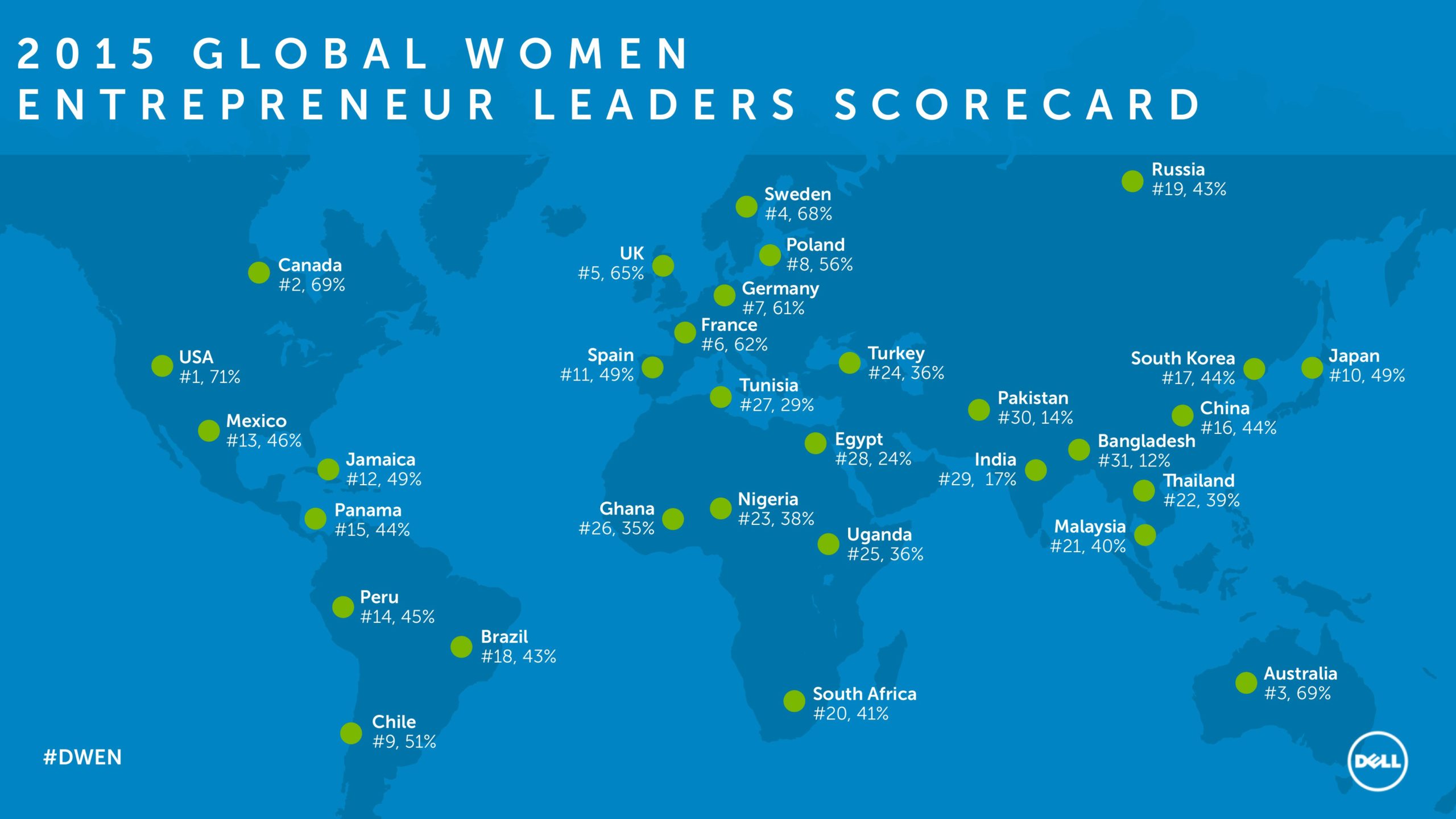Sponsored by Dell, market research institute ACG has compiled the Global Women Entrepreneur Leaders Scorecard. This provides governments with a diagnostic tool that highlights the current general conditions for female entrepreneurs in the various countries surveyed, points to missing data and presents Best Practices and potential improvements.
The results, presented at the sixth Dell Women’s Entrepreneur Network (DWEN) international conference in Berlin at the end of June, are based on surveys from 2013 and 2014, which closely examined 31 countries on the basis of 21 indicators. The data comes from pools such as the Global Entrepreneurship Monitor (GEM) and from institutions such as the World Economic Forum, the World Bank, UNESCO and the International Labour Organisation (ILO).
The scorecard value provides information about the quality of the general conditions for women entrepreneurs in each country looked at. The higher the scorecard value, the better the general conditions. It also takes into consideration factors independent of gender, such as the extent of regulatory restrictions on the economy in a given country, corruption, monopolies, the available capital for financing company growth and so on.
The US currently ranks in first place, with a value of 71%, although, according to the study, this top value is in particular due to the general healthy economic environment in the US. The specific values for the involvement of women in start-ups and the extent of their belief in their own abilities as an entrepreneur, for example, are, however, merely average. The authors of the study believe that up to 15 million new jobs could be created if women in the US were to start up as many businesses as men.
At place 2 and 3 on the scorecard are Canada and Australia, each scoring 69%, while the European countries Sweden (68%), Great Britain (65%), France (62%), Germany (61%) and Poland (56%) occupy places 4 to 8. With 49%, Spain shares 10th place with Japan and Jamaica.
As the result of the study, the authors have come up with five factors to support female entrepreneurship:
– Women require equal access to resources, such as education, the Internet, bank accounts and business training programmes.
– Just like male entrepreneurs, they need easy access to capital and innovation ecosystems.
– Female CEOs, senior female managers and female executives generally also mean higher salaries and better conditions for other female employees.
– When awarding public contracts, governments should systematically support companies managed by women. It is also important that gender-specific data is collected on a regular basis.
– Gender-specific differences hamper business start-ups.
An executive summary of the scorecard is available to download as a free PDF. Tables of the results from the individual categories are also available, both in text form and as interactive graphs. (Source: Dell/rf)
